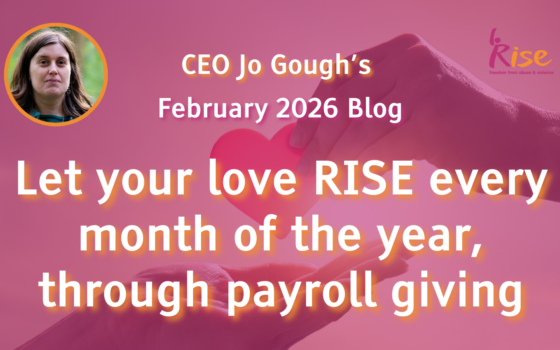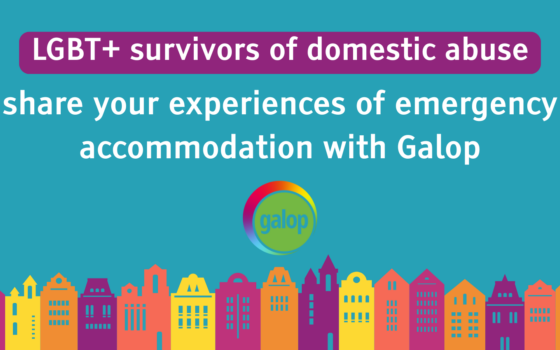"In September 2023, RISE wrote about the issues we see within the family Court system, and the work we do to support women around Family Law.
A year later, I’d like to say that things have got better but unfortunately, that’s not what we are seeing.
I am pleased to share that we have been awarded funding for two more years of work with women and children who are navigating family law. This came after a period fraught with doubt, where we could not see how we would be able to continue to deliver this work. As we got closer to the end of our funding, we set up a peer support programme, in the hope that women would be able to support each other even if we were no longer able to help. This has been a real success. Our worker described the first session as ‘a beautiful, beautiful day…Immediately these strong, powerful relationships were forming’. Linked to this, we have connected with a researcher, working in a related field, who is sharing experiences of similar groups with us, meaning we don’t have to reinvent the wheel.
Unfortunately, I'm disappointed to report that the climate for survivors navigating family law is increasingly hostile. Last year, a senior source within RISE said,"I constantly see the courts placating and appeasing perpetrators, centring their ‘rights’ to contact rather than focussing on what's best for the children. It feels like the courts are desperate not to rock the boat.”
We’re still seeing that. The same source this year said, ‘The assumption of right to contact as a parent needs to go out of the window. The family court is so focused on two parents being necessary to make a child whole, which we know is nonsense. A child coming home without bruises does not mean that the child is not being traumatised mentally. We need to be thinking about positive male role models, and what is best for the child, not this automatic right of contact.’
Worse, we’re seeing an increasing amount of litigation by perpetrators. In some cases, perpetrators are mounting legal fights for access to children who have stated explicitly that they are scared of, and do not want to see, that parent. We’re also seeing the impact of financial abuse play out in the courts. We see perpetrators who have been financially and coercively controlling pay vast sums for legal support, when the survivors can only access legal aid. And we’re seeing an increase in requests for our case notes to be made available to the courts.
The source within RISE said, ‘It sounds laughable but you could almost imagine that there’s some sort of well organised advisory movement behind this - at every stage, the system seems so set against the women we support. When perpetrators are able to pay for the best legal support, they can ensure that every tiny detail is presented in a certain way. With the best will in the world, barristers working through Legal Aid don’t have the capacity to be as ‘on it’ as our clients need. We’ve seen confidential details, that should have been redacted, remain visible in documentation, exposing our clients to risk, and crucial evidence about our clients engagements with us has been entirely missed from court briefings. If I’m not in court taking notes, or for sentencing, mistakes in transcription and wording slip through meaning that the woman gets a completely inaccurate view of what’s been said. And as well as all that, we’re also seeing an increase in perpetrators contacting our service, making complaints, making subject access requests. It’s relentless.’
I'm truly delighted that we will be able to be here for survivors navigating the family courts for two more years. We want the system to change, and we want to do more. Support us here so that we can."
If you are affected by this, RISE has the only dedicated Family and Civil Courts Advocate in Sussex. Contact us here to find out how to get support.
Update 1st October 2024
For those who are unfamiliar with the Family Courts and the ways in which they fail families, Claire Throssell’s sons Jack and Paul were 12 and nine when they were killed by their father during a contact visit that they had not wanted. He had previously been physically violent and emotionally abusive to Claire and the two boys. In this Guardian article, published on the 1st October 2024, Claire explains why she is still fighting, ten years on, for their story to be heard, and to prevent more tragedies.
The UK Ministry of Justice report 'Assessing Risk of Harm to Children and Parents in Private Law Children Cases' published in June 2020 also explores this matter. This report recommended that '...comprehensive changes are needed'. Among many other things, it found that 'there are significant negative impacts to children being unheard during proceedings'. and it raised concerns about the 'pro-contact culture..and decisions about when allegations of domestic abuse are considered relevant.


